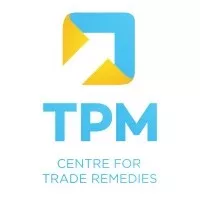- within Media, Telecoms, IT and Entertainment topic(s)
- in United States
In the last couple of years, the Directorate General of Foreign Trade (DGFT), Ministry of Commerce has recently taken various steps in order to move towards a paperless, transparent and digital system with the aim of helping India strive towards a higher ranking in the Ease of Doing Business (EoDB) Index. The DGFT has revamped their website and launched a portal that allows exporters / importers to file and track their applications online, making the process of availing benefits under various export incentive schemes easier. However, there continue to be certain technical difficulties, which still need to be resolved to ensure smooth functioning of the new system.
Introduction
The Ministry of Commerce launched the much-anticipated Foreign Trade Policy of India earlier this year. One of the four pillars of this new Foreign Trade Policy 2023 is focus on increased Ease of Doing Business. The EoDB Index is a system established by the World Bank that ranks countries based on certain pre-defined parameters to determine the level of the ease of conducting business in that country. Amongst the 190 countries, India ranked 63 in Doing Business 2020: World Bank Report1, as compared to its 142nd position 3 years ago. It has achieved this by taking major reforms to cut cost, time, documentation and procedures for conducting business in the country. As a result, many government Departments, including the DGFT has undertaken several IT Initiatives to enable a digitalized environment for availing benefits under the export promotion schemes, in the last few years.
Online Customer Portal
One of the first steps taken in this direction the new online platform launched by DGFT in 2020 in the form of a revamped website with the aim to ensure digital delivery of services. The new website allowed access to various services, such as those related to issuance and modification of the Importer Exporter Code (IEC), along with a virtual assistant catering to queries of users. An importer / exporter is required to update their profile regularly on the online IEC module. This would enable efficient delivery of services to the IEC holder and paperless processing in DGFT.
Online filing and processing of applications and assistance
The next phase of the plan involved improvement of the process for managing the entire lifecycle of certain fundamental export incentive related schemes such as Export Promotion Capital Goods Scheme and Advance Authorization Scheme. The DGFT worked to develop an electronic system wherein the applicants can apply online for various trade related benefits/services, supplement required documents, reply to the queries and track status of applications. Moreover, the applicants can also upload digitally signed documents certified by Chartered Accounts / Cost Accountants and link such documents submitted as part of the annexures to their online applications under various schemes. The new automated system also allows for processing of the applications in a phased and rules-based manner.
Further, a 24 X 7 helpdesk facility has been set up to facilitate and help the exporters file online applications and other matters pertaining to Foreign Trade Policy. A mobile application has also been launched for any information relating to trade statistics, FTP schemes and status of applications.
Moreover, effective message exchange systems have been put in place with various community partners of the DGFT such as the Central Board of Excise and Customs (CBIC), Central Board of Direct Taxation (CBDT), Ministry of Corporate Affairs (MCA) and major Indian banks. In addition to this, even the CBIC has implemented the ‘Indian Customs Single Window Project' to facilitate trade, where importers and exporters can electronically lodge their Customs clearance documents at a single point.
Challenges with the new system
However, the new system comes with its own challenges. In some cases, due to the difficulty expressed by applicants in using the online platform or due to certain errors in the information available on the platform, the DGFT had to discontinue the mandatory filing and give an option to file applications manually / physically for some time.
Another key challenge for the DGTR would be to ensure that the new system does not have any glitches or errors that creates any hindrances for the users in filing of application and processing of application. This would lead to significant delays for the applicants that may even slow down their internal operations.
The Indian government, particularly the DGFT is continuously improving their system and making it increasingly automated. In order to ensure successful implementation of these initiatives, it is imperative that adequate steps are taken to guide the importers / exporters and ensure such platforms run smoothly. Nevertheless, the increased digitalization in a welcome step towards simplification of procedures, and in moving towards a paperless system.
Footnote
The content of this article is intended to provide a general guide to the subject matter. Specialist advice should be sought about your specific circumstances.



